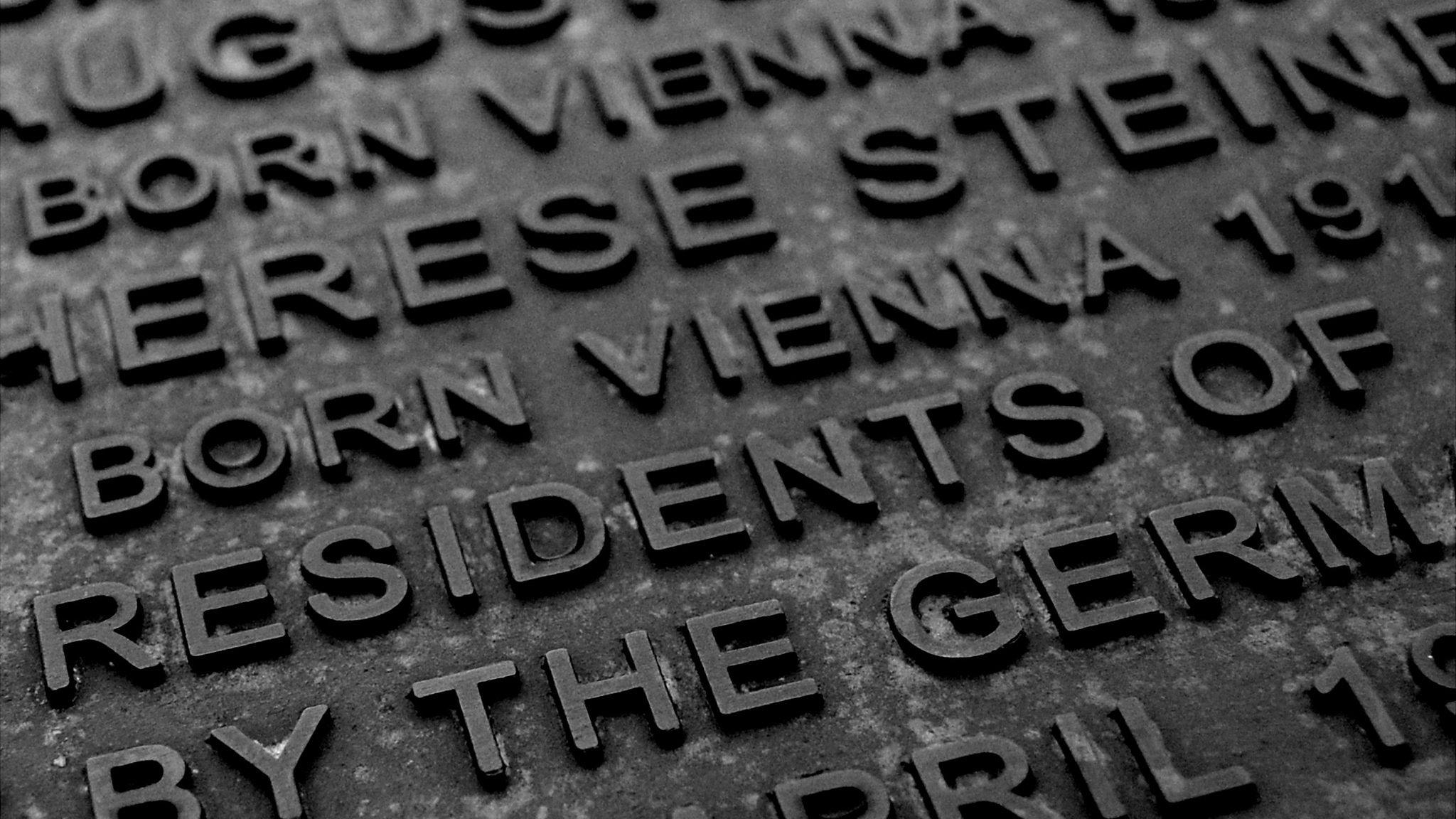Alderney historian challenges new Nazi occupation claims
- Published
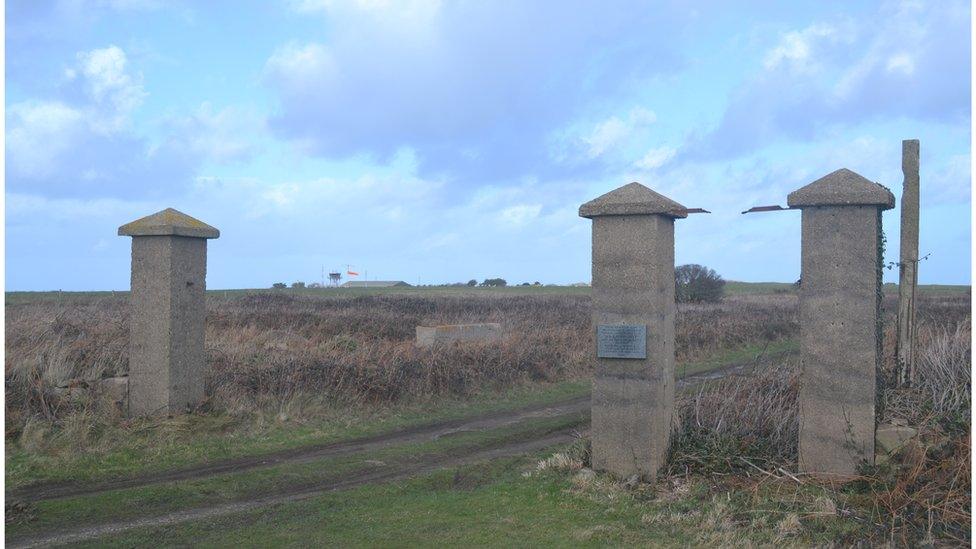
It is not known exactly how many people died in Alderney during the occupation
Claims made by two military authors in a national newspaper concerning the Nazi occupation of Alderney have been contested by an island historian.
Writing in the Daily Mail, Col Richard Kemp and John Weigold claim an underground site near the main town of St Anne was being prepared to launch a chemical weapons attack on England's south coast.
Trevor Davenport, author of Festung Alderney, a book on German defences on the island, described the claim as "utter nonsense."
He said: "There are of course many things we do not know, that is accepted, it's always been accepted, it was quite secret. But some of the things they say were not possible."
Col Kemp and Mr Weigold claim that a tunnel site, which was previously thought to be used for generating electricity, was used to develop and launch V1 missiles.

V1 rockets were developed in nearby Cherbourg
The weapons were created by the Germans to launch attacks on England from the continent, with sites located not far from Alderney in Cherbourg.
Col Kemp believes the Alderney site was also used to develop these missiles into chemical weapons, primarily because of the secrecy afforded by the island, which was almost entirely evacuated prior to its occupation in 1940.
"We came to the conclusion, with other factors, that this is why they were sited in Alderney, because you could construct and prepare V1's with nerve agent warheads on them, which you could do in total secrecy given the unique circumstances of Alderney, there was no possibility of anyone discovering it," he said.
Col Kemp believes he has also identified two launch ramps for the rockets, which "both point at the centre of mass of target sites on the south coast of England, which it is known the V1 sites in northern France were also aimed at."

Alderney Occupation
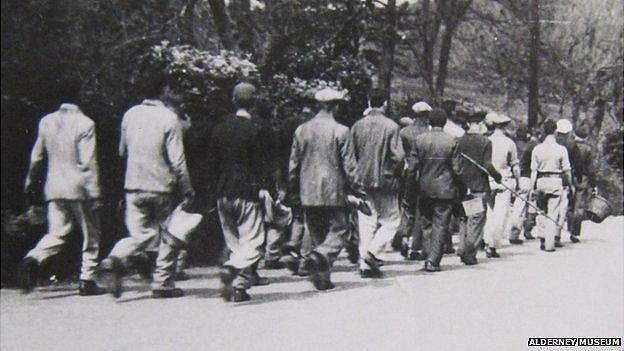
Demilitarised in 1940, along with other Channel Islands
Occupied by German forces in June 1940
The most heavily fortified Channel Island as part of Hitler's Atlantic Wall.
Nearly all of Alderney's population was evacuated to England.
Four labour camps were established - named after the German islands Borkum, Helgoland, Norderney and Sylt.

The apparent need to develop the weapon in Alderney, given the proximity of the sites nearby in France, has puzzled Festung author, Trevor Davenport.
He said: "There were V1 sites in Cherbourg, why try and ship stuff over to Alderney when they could build on the mainland? It was just as close.
"There were none in Alderney, there never were, they were never picked up on in aerial photographs at all."
The military authors also claim up to 70,000 people could have been killed on the island, which housed four forced labour sites, including the only concentration camp on British soil.
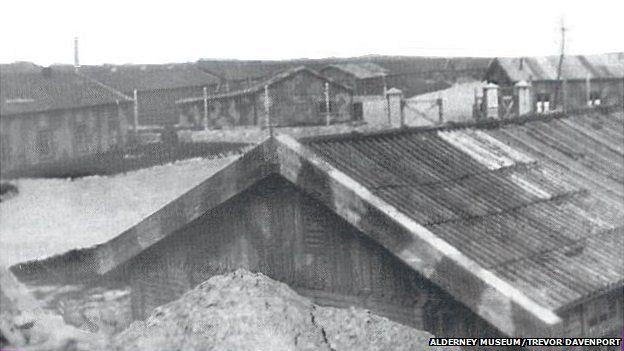
Alderney was almost completely evacuated before the occupation in 1940
The number of prisoners that died in the Island has never been fully uncovered.
Maj Theodore Pantcheff - the official military intelligence interrogator who investigated after the war - recorded that at least 389 forced labourers and prisoners as dying in Alderney.
Israeli journalist Solomon Steckoll previously estimated four thousand deaths on the island, based on eye-witness testimony and his own research in the 1980s.
Last year, heritage group The National Anglo-Jewish Heritage Trail (JTrails) expressed concern war graves in Alderney could be disturbed by a £500m cross-Channel electricity link. Initial drilling for the France Alderney Britain Link, an undersea cable, has taken place in Alderney, but progress has stalled due to environmental concerns and local opposition to the project.
Alderney's top politician James Dent said he didn't want to comment on the truth, or otherwise, of the military authors' claims.
He said it would be a "very opportune" time for the British government to release "all remaining wartime files pertaining to Alderney, and for the German government to do the same."
- Published31 March 2016
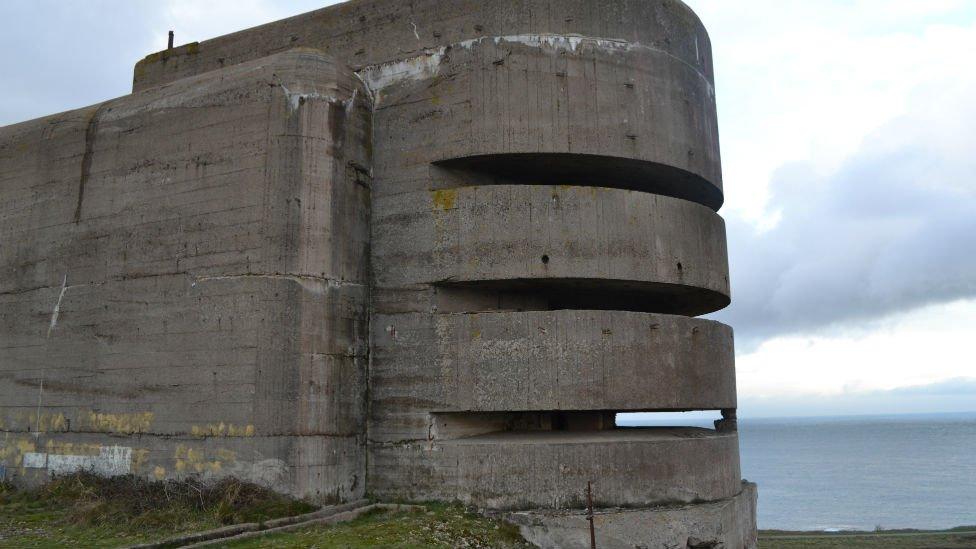
- Published10 March 2015
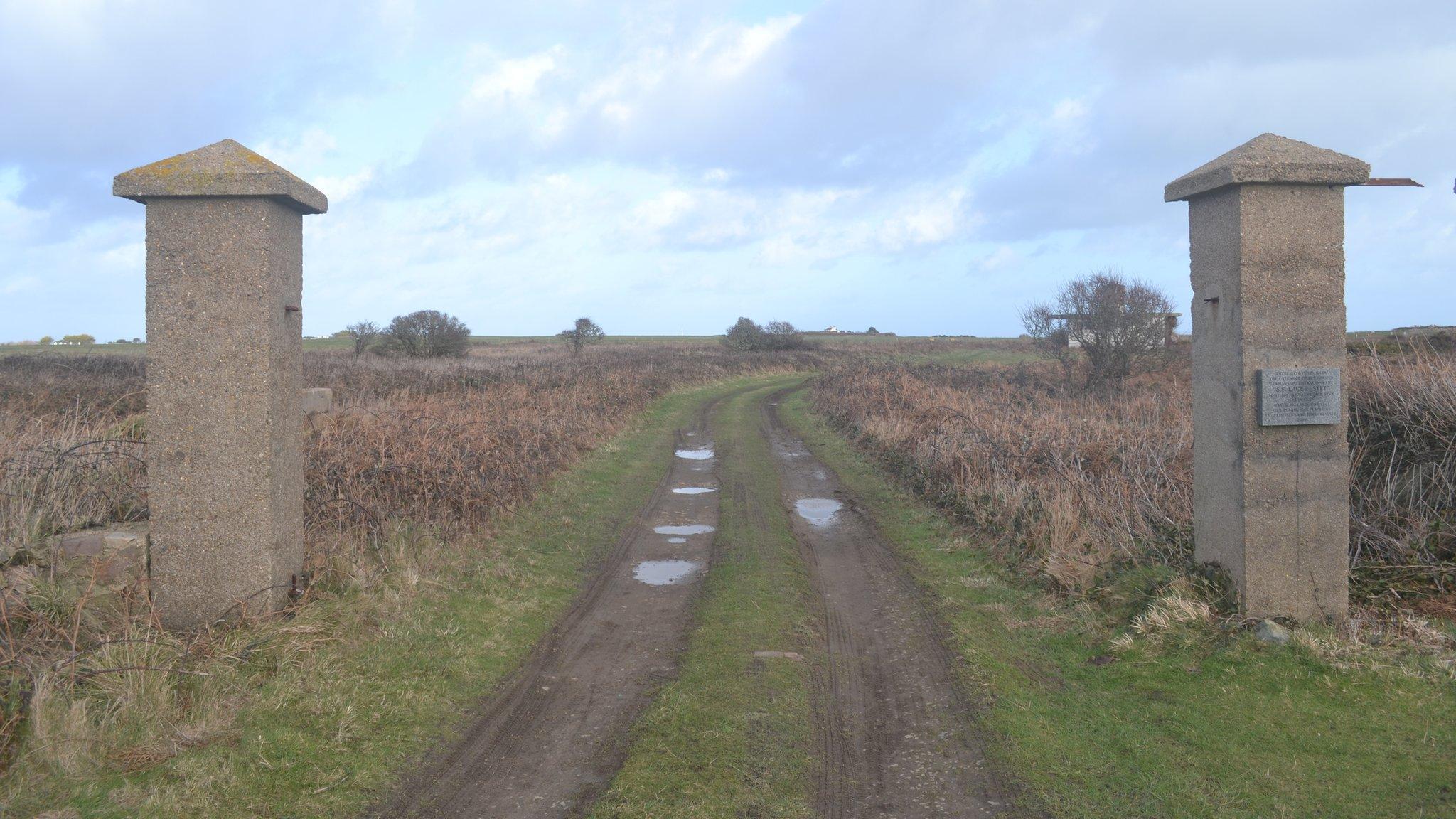
- Published29 November 2016
